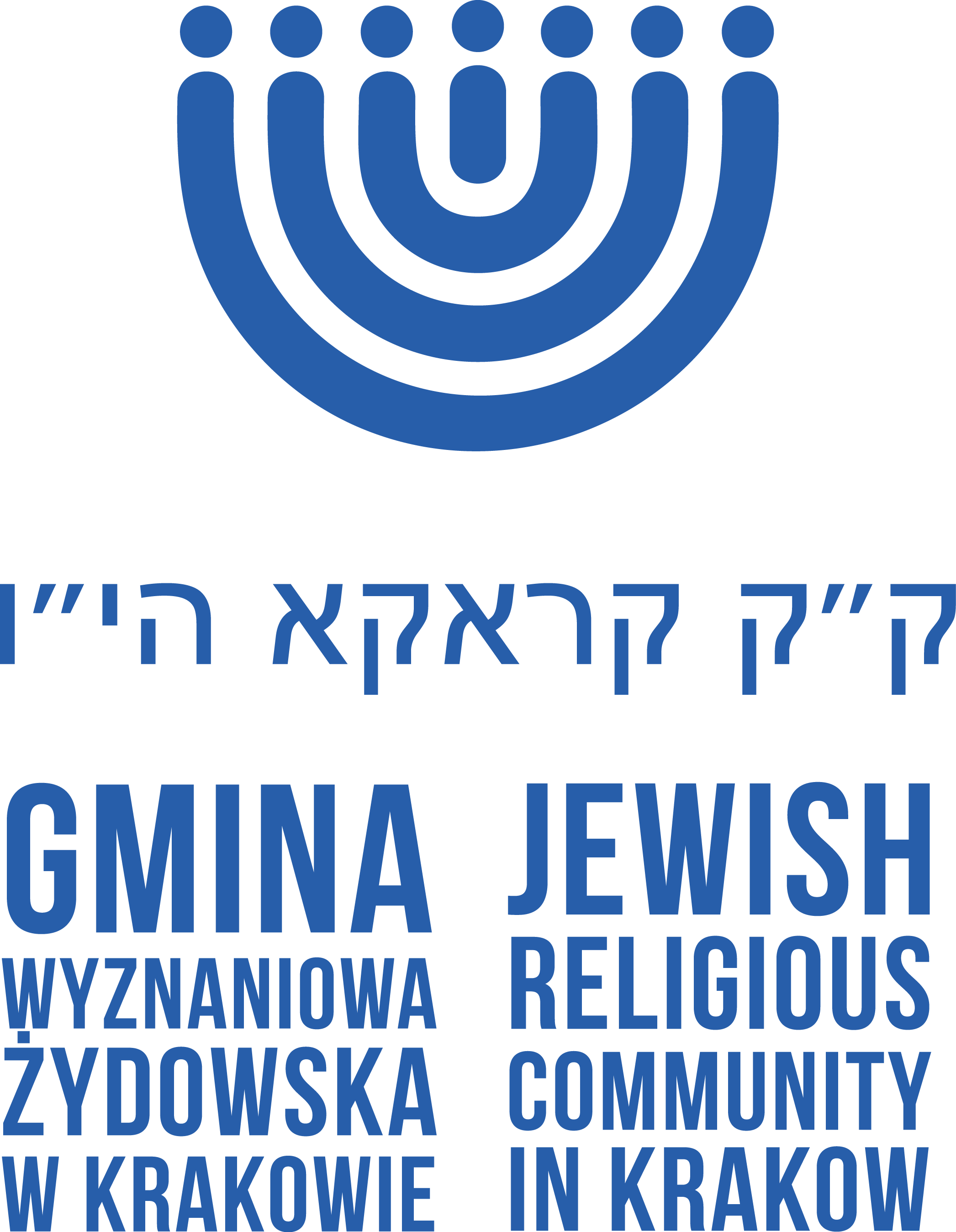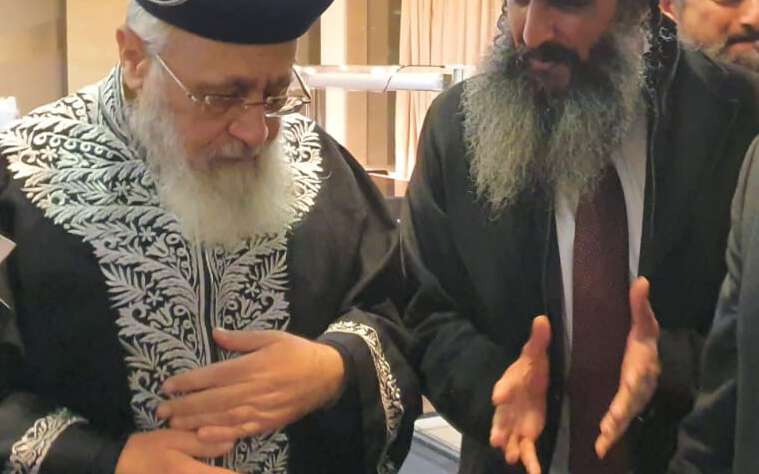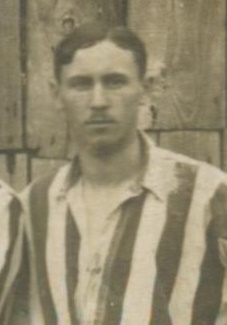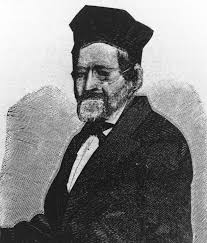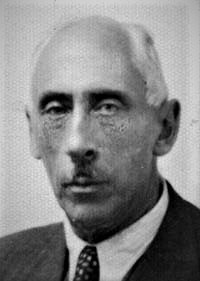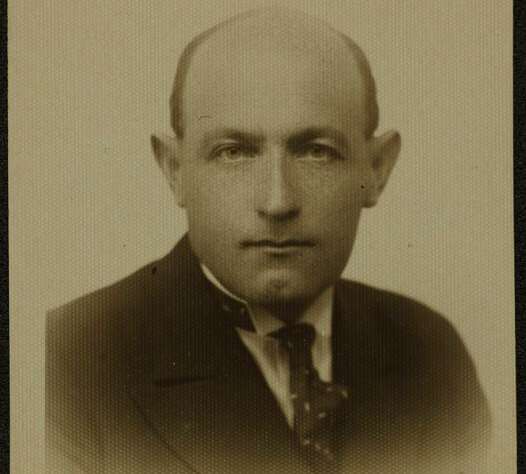Boaz Gadka, Rabbi of The Jewish Religious Community in Kraków, talking to the Sephardi Chief Rabbi of Israel, Yitzhak Yosef, at the 31st Conference of Rabbi Property Court Judges (3rd February 2022).
Zygmunt Alfus (Szymon Alfus) – a football player at Cracovia football club and Makkabi Kraków, a referee, a sports activist, a craftsman as well as an official, was born on 3rd February 1901. Before the outbreak of WWII, Alfus was an activist at Hakoahu Bielsko-Biała. After WWII, he joined the Salesian Football Association in Katowice. Zygmunt Alfus was a Board Member of the Polish Football Association (PZPN) where he held the position of a Deputy Secretary, followed by the Association Captain position as well being the coach of the national team during five official international games. Alfus was removed from the Polish sports structures due to political reasons (he was a Home Army member during WWII). In 1956 Zygmunt Alfus worked actively to reactivate the Salesian Football…
Izaak Mieses (born in 1802 in Lviv), passed away on 3rd February 1883 in Toruń. For many years he was linked with Cracow (from 1830’s until 1863, when Mieses left to Toruń). Associated with progressive circles, a prominent expert on the history of Kabbalah, European philosophy, a supporter of Haskalah. Following Alicja Maślak-Maciejewska’s monograph regarding Cracow’s progressive circles, in 1861, it was necessary to employ a permanent preacher, when the construction of a progressive synagogue was at the finishing line. Most importantly however, it was crucial to invite someone to give the innauguration sermon. Even though Izaak Mieses dealt with trade and wasn’t a professional preacher, he was the one who was chosen. He did have letters of recommendation from Solomon Judah Löb HaKohen Rapoport, known as Shir, yet Mieses…
1st February marks the birth date of Adolf Siódmiak. Born in 1879, in Cracow, Siódmiak was an architect who graduated from the Vienna Technical University in the Faculty of Architecture. His most notable projects include: the orphanage building for Jewish children at Kołłątaja 13 in Tarnów, „Dom Wenecki” (”The Vienna House”) on the Main Market Square 11, a residential house for the staff of the Jewish cemetery at Jerozolimska 14, a funeral parlour at the Jewish cemetery at Jerozolimska 14, mansions at Chłopickiego 16, 3, Misiołka 3, Litewska 13 and Kościelna 5, A Jewish Dormitory for the Association of the Jagiellonian University Students ”Ognisko” at Przemysłowa 3 (designed together with Tobiasz Wexner), tenement houses at Krasińskiego 10 and Morawskiego 10 (designed together with Henryk Ritterman), the buildings…
Wiktor Rudolf Ormicki (Nussbaum), the son of Fryderyk Wilhelm, a lawyer and a rail official and Salomea, neé Amenis – a Geography lecturer at the Jagiellonian University, was born on 1st February 1898 in Staroniwa, one of Rzeszów’s discticts. After graduating from grammar school and completing military service in the Austrian army, Nussbaum started studying at the Law Department of the Jagiellonian University. In the face of the Polish – Soviet war, he ceased his education and joined the Polish Army. After coming back from the army in 1922, Nusbaum resumed his education, this time studying Geography in the Department of Philosophy at the Jagiellonian University. The surname-change decision that he made in 1924 was a huge milestone in his life. He was no longer Nussbaum. He…
Edwin Opoczyński, the son of Aleksander Biberstein, a specialist in Orthopaedics and Surgery, was born on 25th January 1918 in Cracow. Edwin Opoczyński got his education in Cracow where he passed the maturity exam and subsequently, started studying Medicine at the Jagiellonian University. On the day of WWII outbreak, Opoczyński was a 3rd year Medicine student who also worked as a volunteer at the Internal Diseases Ward of the Gabriel Narutowicz Hospital in Cracow. After German invasion in September 1939, the continuation of his volunteer work at the hospital became impossible. Thus, Opoczyński moved to the Jewish Hospital located at Skawińska Street. After establishing a getto, the medical facility was included within its area. After closing the Cracow’s getto in March 1943, Opoczyński was moved to the…
18 January 1892 marks the birth of Fryderyk Tadanier. Born in Kamionka Strumiłowa, Tadanir was a modernist architect. His works include the Municipal Savings Bank, (pl. Szczepański 5, designed with Stefan Strojek), the District Department on the corner of Słowackiego 18a and Łobzowska 44 (also together with Stefan Strojek), the reconstruction of the Main Post Office at Wielopole 2, the Regional Intermunicipal Association of Social Care at Praska, the Ćmielów Factory house at Biskupia 11 and Sereno Fenn 2, the reconstruction of the Theatre Bagatela, the Railway Station Post Office building in Kraków and he Social Insurance Institution (ZUS) at Pędzichów 27. Fryderyk Tadanier was a graduate of the the faculty of Civil Engineering in the Lvov Technical University. However, Tadanir decided to link his professional life…
BS”D 21 Elul 5781 In February 1945, right after the end of the German occupation, a plan was made to open a Jewish orphanage in Rabka, which would alleviate the situation of the Temporary Committee for Help for the Jewish Population in Kraków on ul. Długa 38. The children who had survived the camps would go there. Finally an orphanage for the sickest children was opened in Rabka at the end of June 1945. It included three villas (named Stasin, Juras and Niemen) and about 100 children were sent there, from various cities in Poland. The lists from the summer of 1945 show the presence of about 115 children who had witnessed the horrors of the Shoah. Parts of the local inhabitants were scandalised, especially Father Józef…
